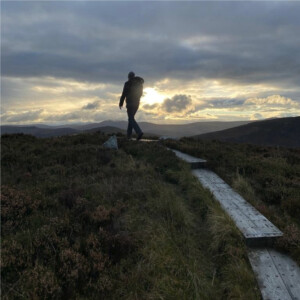
Elizabeth Barrett Browning (1806 – 1861) was an English poet of the Victorian era.
Born in County Durham, the eldest of 12 children, Elizabeth Barrett wrote poetry from about the age of six. At 15 she became ill, suffering intense head and spinal pain for the rest of her life. Later in life she also developed lung problems, possibly tuberculosis.
Her first adult collection of poems was published in 1838 and she wrote prolifically between 1841 and 1844, producing poetry, translation and prose. She campaigned for the abolition of slavery and her work helped influence reform in the child labour legislation. Her prolific output made her a rival to Tennyson as a candidate for poet laureate on the death of Wordsworth.
Elizabeth's volume Poems (1844) brought her great success, attracting the admiration of the writer Robert Browning. Their correspondence, courtship and marriage were carried out in secret, for fear of her father's disapproval. Following the wedding she was indeed disinherited by her father. The couple moved to Italy in 1846, where she would live for the rest of her life.
How do I love thee? Let me count the ways.
I love thee to the depth and breadth and height
My soul can reach, when feeling out of sight
For the ends of being and ideal grace.
I love thee to the level of every day’s
Most quiet need, by sun and candle-light.
I love thee freely, as men strive for right.
I love thee purely, as they turn from praise.
I love thee with the passion put to use
In my old griefs, and with my childhood’s faith.
I love thee with a love I seemed to lose
With my lost saints. I love thee with the breath,
Smiles, tears, of all my life; and, if God choose,
I shall but love thee better after death.
Become a member at https://plus.acast.com/s/thewanderingpaddy.
Hosted on Acast. See acast.com/privacy for more information.
More Episodes
 2024-11-04
2024-11-04
 2024-10-29
2024-10-29
 2024-10-26
2024-10-26
 2024-10-15
2024-10-15
 2024-09-25
2024-09-25
 2024-09-23
2024-09-23
 2024-09-21
2024-09-21
 2024-09-19
2024-09-19
 2024-09-15
2024-09-15
 2024-09-13
2024-09-13
 2024-09-12
2024-09-12
 2024-09-08
2024-09-08
 2024-09-07
2024-09-07
 2024-08-31
2024-08-31
 2024-08-30
2024-08-30
 2024-08-21
2024-08-21
Create your
podcast in
minutes
- Full-featured podcast site
- Unlimited storage and bandwidth
- Comprehensive podcast stats
- Distribute to Apple Podcasts, Spotify, and more
- Make money with your podcast
It is Free
- Privacy Policy
- Cookie Policy
- Terms of Use
- Consent Preferences
- Copyright © 2015-2024 Podbean.com





